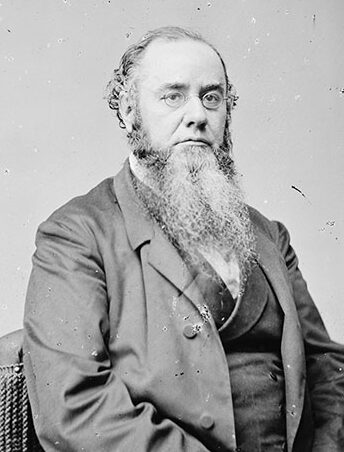America’s Five Best and Worst War Czars
John Armstrong, Secretary of War, 1812–1814
Weak, inept, and petulant
John Armstrong got his start in the military during the American Revolution, serving as an aide first to General Hugh Mercer and then to the scheming Major General Horatio Gates. After drafting the near-mutinous postwar Newburgh addresses threatening Congress with a military coup if it did not meet the army’s pay demands, he embarked on a career in politics.
As secretary of war he often knew what needed to be done—including invading Canada by Lake Champlain rather than via the less promising Niagara frontier route—but lacked the will to follow the better course. Irascible and petulant, he tolerated the gross incompetence of fools and knaves such as Major General James Wilkinson, defeated by a force a scarcely a third the size of his own at the Battle of Crysler’s Farm in November 1813. Armstrong feuded with Secretary of State James Monroe, and after his ineptitude led to the British burning of Washington, D.C., quit just before he was fired.
John B. Floyd, Secretary of War, 1857–1860
Traitor to his country
The self-righteous, slave-owning Virginia lawyer and politician first made his mark via nepotism (a questionable deal between the army and his wife’s cousin) and maladministration of the War Department. As the crisis of the Civil War came to a head, he argued against sending reinforcements to the beleaguered Fort Sumter and was accused of shipping arms to the seceding states.
He quit and left town, embarking on a dubious military career with the Confederacy, his biggest claim to fame coming in 1862 when he scampered away from the Union siege of Fort Donelson, leaving 13,000 of his men to surrender. Confederate president Jefferson Davis dismissed him shortly afterward.
Edwin M. Stanton, Secretary of War, 1862–1868
Master of organizing for war
This contemptuous legal rival and inveterate political opponent of Abraham Lincoln became his staunch lieutenant. To his energy, rectitude, and determination the cause of the Union owed an incalculable debt: Without him it is hard to imagine the vast, well-equipped, and abundantly supplied armies that crushed the rebellion. Not least among his services were his persecution of crooked contractors, the mobilization of freed blacks, and his merciless hounding of weak, incompetent, or timid commanders—notably George McClellan.
Elihu Root Secretary of War, 1899–1904
The great modernizer
Over the stubborn opposition of the politically connected Nelson Miles, then commanding general of the army, Root thoroughly reformed that institution. Among his improvements were expanding the army from 28,000 to well over 60,000 men, extending its control over the National Guard, insisting that officers rotate between staff and line duties and be promoted largely by merit, creating the Army War College and expanding West Point, and replacing the antiquated and inadequate autonomous bureaus with a modern General Staff system.
Melvin Laird, Secretary of Defense, 1969–1973
The man who kept it together
Laird had to hold the Department of Defense together amid a war gone sour in Vietnam, racial turmoil, a military drug-use epidemic, and political crisis. He oversaw the turn away from conscription and development of technology, such as cruise missiles, and restored a sense of civilian-military harmony in the Pentagon, where the joint chiefs had been at daggers with his predecessors. By Henry Kissinger’s grudging admission, Laird was the only man to beat him in bureaucratic knife fights, as when he snatched a potentially dangerous analytic operation (the legendary Office of Net Assessment) from the White House, and brought it to the Pentagon.
Eliot A. Cohen is professor of strategic studies at Johns Hopkins University’s School of Advanced International Studies and the author of Conquered Into Liberty (Free Press).






